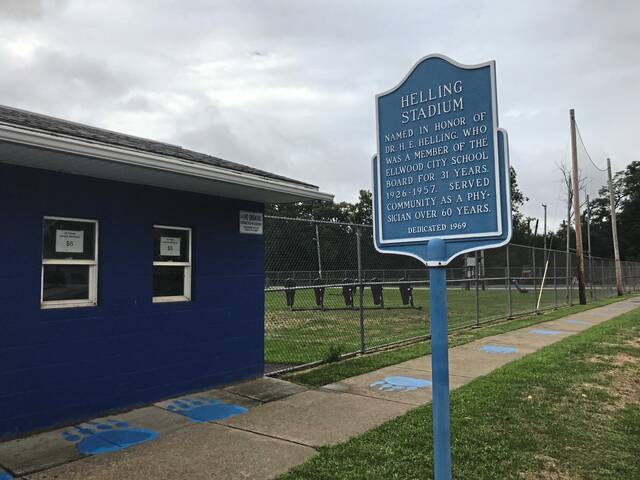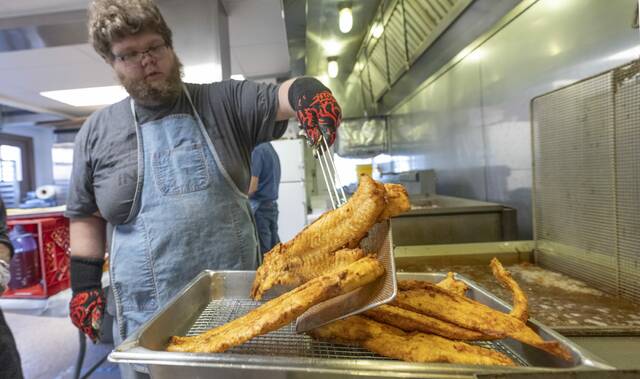How are you feeling? “6-7.” How tall are you? “6-7.” What time is it? “6-7.”
This week, Dictionary.com announced “6-7” (pronounced “six-seven”) as its Word of the Year, putting the nonsense internet slang trend that’s exploded among Gen Alpha and Gen Z – and frustrated parents and teachers – back in the spotlight.
The phrase has been around for nearly a year and its meaning is fluid. The online dictionary said some people interpret it to mean “so-so” or “maybe this, maybe that” but it can also be used in isolation to draw laughter and sow confusion.
Because of its shifting meaning, Dictionary.com says its an example of “brainrot slang,” which is intended to be “nonsensical and playfully absurd,” like last year’s “skibidi.”
For many adults, it’s been a challenge to keep up with the verbal trends on social media sites like TikTok. But that’s nothing new, experts say, especially in the age of the internet when trends can take hold faster than ever before.
“Older people have been rolling their eyes at the things younger people do and say for thousands of years,” Jesse Sheidlower — a lexicographer, educator, editor and author who’s served as president of the American Dialect Society and helped edit the Oxford English Dictionary — previously told USA Today.
“The whole point is that it’s not meant for you,” he added.
How did the ‘6-7’ trend start?
The origins of “6-7” tie back to the song “Doot Doot,” released by rapper Skrilla in December 2024. In the song, Skrilla sings, “The way that switch, I know he dyin’. 6-7.” The rapper has not revealed the meaning of “6-7” but some suggest it could be a reference to 67th Street in Skrilla’s hometown of Philadelphia, according to Know Your Meme, a database for memes and internet slang.
After its release, the song was used to soundtrack basketball highlight videos of Charlotte Hornets point guard LaMelo Ball, whose height is 6-foot-7. In the earliest videos, a sports commentator says Ball plays like he’s 6’1, even though he’s “6’7,” at which point the song “Doot Doot” kicks in and the video shows a compilation of Ball’s best moves on the court.
This format then spread beyond basketball. In one TikTok, a teen sings along to “Doot Doot” as a caption reads “me when i get a 67% on my test but all i hear is 6 7.”
The word’s popularity exploded with the “67 Kid” meme, which stems from an excited fan at a youth basketball game saying “6-7” to a camera as he moves his hands up and down, according to Know Your Meme.
The phrase and hand movements have since gained widespread traction among Gen Alpha and soon spread into the mainstream with sports commentators mentioning it and players using the hand gestures in celebrations.
The age of brain rot
A lot of Gen Z and Gen Alpha’s slang comes from the internet, just not the same corners of the ‘net that their parents are using.
“Popular slang in 2025 continues to be heavily influenced by TikTok, Instagram, gaming, streaming, Gen Z and Alpha online communities,” Randoh Sallihall previously said in an email to USA Today. “Trends from social media spread rapidly via memes and viral challenges. Fueled by technology, our language adapts to new slang trends more rapidly than ever.”
“6-7” is one of many recent viral phrases that has bewildered adults. Others include “skibidi,” “SDIYBT,” “rizz” and “sigma.” While some of these words have meaning, many of them don’t and are part of a growing trend of “brainrot slang,” which are characterized by their absurdity.
Brain rot, which was the 2024 Oxford Word of the Year, is defined as the assumed deterioration of a person’s mental state as the result of overconsumption of material online considered to be trivial or unchallenging.
With more time spent online, scrolling TikTok, YouTube and Instagram Reels, younger people are increasingly adopting these meme-related phrases into their everyday vocabulary, repeating them as part of an inside joke of sorts.
“It’s part inside joke, part social signal and part performance,” said Steve Johnson, director of lexicography for the Dictionary Media Group at IXL Learning, in a statement on 6-7.
“When people say it, they’re not just repeating a meme; they’re shouting a feeling,” he said. “It’s one of the first Words of the Year that works as an interjection – a burst of energy that spreads and connects people long before anyone agrees on what it actually means.”








